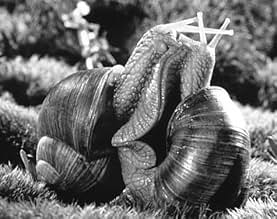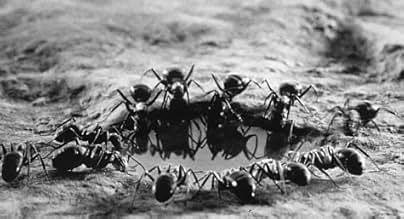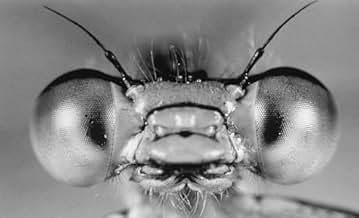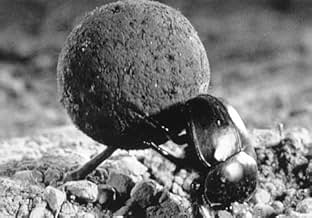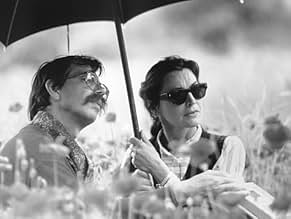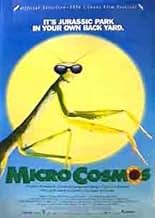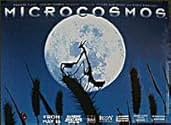AVALIAÇÃO DA IMDb
7,9/10
12 mil
SUA AVALIAÇÃO
Adicionar um enredo no seu idiomaA documentary on insect life in meadows and ponds.A documentary on insect life in meadows and ponds.A documentary on insect life in meadows and ponds.
- Direção
- Roteiristas
- Artistas
- Prêmios
- 9 vitórias e 9 indicações no total
Jacques Perrin
- Récitant
- (narração)
- …
- Direção
- Roteiristas
- Elenco e equipe completos
- Produção, bilheteria e muito mais no IMDbPro
Avaliações em destaque
Microcosmos is a magnificent journey, an experience to explore a world full of details and wonder. After watching this "documentary" you would never see another insect in the same way as before.
If you read some comments complaining about the little-to-non-existent narration is because they fail to understand this "documentary" is not about getting the facts straight. It is an experience and as such it is to be lived not to be told.
Sit on the grass, observe, and paint the daughter of the dragonfly.
If you read some comments complaining about the little-to-non-existent narration is because they fail to understand this "documentary" is not about getting the facts straight. It is an experience and as such it is to be lived not to be told.
Sit on the grass, observe, and paint the daughter of the dragonfly.
10cmosling
The technology of the human race has finally let us truly see the marvels of what lies beneath our feet every day. I don't know how a documentary on insects could ever succeed with out some guy's deep soothing voice come in to tell us what the heck was going on but this movie proved that it can defiantly be done. Micro Cosmos actually make me feel small for not realizing what happens in the real world of insects. If you thought "A Bugs Life" was cool in terms of the technical aspects, after watching this, you will know where they got they're ideas from. I have no interest in bugs, but if youre ready to be enlightened; this will do it for you.
It was undeniably beautiful. Take a meadow in France that appears to consist of nothing but grass, and show us what wonders there are to be seen if you lower your eyes and look at the very very small...
Insects (and arachnids and teensy molluscs) offer a possible advantage over, say, lions; in that with insects, cinematography really comes into its own. If you want to show a lion catching an antelope then you have to point your camera at a likely spot and wait and wait and wait until the event occurs; and when it does, chances are that the lighting is at its worst, the background is less than ideal and you would have got a better view from somewhere else. The world of the tiny gives the fellow with the camera much more control, much more room to manoeuvre. It's much easier to hit upon the perfect angle from which to show the spider eating the grasshopper. I don't know if this is true; but it's one possible explanation for why the shots are so gorgeous, and why we feel we were given the best possible seats.
But if you find yourself asking, "What the hell was going on?" - well, you shouldn't have to ask. You should have been told. One of the reasons (I hope) for watching what is after all a documentary, is to find out WHAT GOES ON in an ordinary meadow; and if the producer thought that a human voice would destroy the sibylline loveliness of it all, that's just too bad - film-making isn't all pretty pictures. If you don't want David Attenborough doing the talking (although frankly, I don't see why you wouldn't), then find someone else or some other style of narration; or, perhaps, take more care to arrange the images so that the images themselves tell the story. I'm sure it could have been done. As it was I got the impression that we were shown ants getting hit by raindrops until they thought we must be tired of ants - and then we were shown something else.
I don't want to carp too much. The makers could well retort that books, rather than films, are ideally suited to explanation, and that they had simply made a film for us to watch AFTER we had read the relevant books. Perhaps they have a point. At any rate, we may remain in the dark, but we have a wonderful view.
Insects (and arachnids and teensy molluscs) offer a possible advantage over, say, lions; in that with insects, cinematography really comes into its own. If you want to show a lion catching an antelope then you have to point your camera at a likely spot and wait and wait and wait until the event occurs; and when it does, chances are that the lighting is at its worst, the background is less than ideal and you would have got a better view from somewhere else. The world of the tiny gives the fellow with the camera much more control, much more room to manoeuvre. It's much easier to hit upon the perfect angle from which to show the spider eating the grasshopper. I don't know if this is true; but it's one possible explanation for why the shots are so gorgeous, and why we feel we were given the best possible seats.
But if you find yourself asking, "What the hell was going on?" - well, you shouldn't have to ask. You should have been told. One of the reasons (I hope) for watching what is after all a documentary, is to find out WHAT GOES ON in an ordinary meadow; and if the producer thought that a human voice would destroy the sibylline loveliness of it all, that's just too bad - film-making isn't all pretty pictures. If you don't want David Attenborough doing the talking (although frankly, I don't see why you wouldn't), then find someone else or some other style of narration; or, perhaps, take more care to arrange the images so that the images themselves tell the story. I'm sure it could have been done. As it was I got the impression that we were shown ants getting hit by raindrops until they thought we must be tired of ants - and then we were shown something else.
I don't want to carp too much. The makers could well retort that books, rather than films, are ideally suited to explanation, and that they had simply made a film for us to watch AFTER we had read the relevant books. Perhaps they have a point. At any rate, we may remain in the dark, but we have a wonderful view.
The film shows some amazing pictures, the one thing it is missing is some narration that would help people understand the things they see. At least, naming the insects would be nice. Also without narration many very interesting events portrayed are likely to be either missed or misunderstood (eg a very funny shot of orchid attracting a drone by looking like a young bee queen, and many other things too).
This is a French-made nature film that features a lot of closeup photography. Much of that footage is amazing stuff. How they got closeups that sharp on these insects is a tribute to the camera lenses available today and the expertise and patience of the photographers.
Some of the shots are so close that, at first, you don't know what insect you're seeing. Other insects are not familiar ones you'd recognize, anyway. Some are really strange-looking.
The colors, the wild shapes and actions of these creatures all make a for a fascinating movie in parts, one that literally all ages should enjoy, as the cliché goes. I found, however, that with no dialog, it was tough to watch more than 30 minutes at one time. You might want to break this up into two or three segments. There is sound, however: the sound these insects make. With the camera-work, it makes you feel as if you, too, were a small object on the ground listening to these strange sounds.
Obviously, this is a unique film and highly recommended.
Some of the shots are so close that, at first, you don't know what insect you're seeing. Other insects are not familiar ones you'd recognize, anyway. Some are really strange-looking.
The colors, the wild shapes and actions of these creatures all make a for a fascinating movie in parts, one that literally all ages should enjoy, as the cliché goes. I found, however, that with no dialog, it was tough to watch more than 30 minutes at one time. You might want to break this up into two or three segments. There is sound, however: the sound these insects make. With the camera-work, it makes you feel as if you, too, were a small object on the ground listening to these strange sounds.
Obviously, this is a unique film and highly recommended.
Você sabia?
- CuriosidadesFilmed over a period of three years.
- Citações
Narrator (English version): [beginning narration] A meadow in early morning, somewhere on Earth. Hidden here is a world as vast as our own, where the weeds are like impenetrable jungles, the stones are mountains, and even the smallest pond becomes an ocean. Time passes differently here: an hour is like a day, a day is like a season, and the passing of a season is a lifetime. But to observe this world, we must fall silent now, and listen to its murmurs.
- Cenas durante ou pós-créditosIn the end credits: Le Conseil Général de L'Aveyron and SIVOM des Monts et Lacs du Lévezou extend the adventure in the world of insects at the Jean-Henri Fabre Center of Saint-Léons in Lévezou, opening in 1998.
Principais escolhas
Faça login para avaliar e ver a lista de recomendações personalizadas
- How long is Microcosmos?Fornecido pela Alexa
Detalhes
Bilheteria
- Orçamento
- CHF 5.000.000 (estimativa)
- Faturamento bruto nos EUA e Canadá
- US$ 1.433.210
- Fim de semana de estreia nos EUA e Canadá
- US$ 35.189
- 13 de out. de 1996
- Faturamento bruto mundial
- US$ 1.433.210
- Tempo de duração
- 1 h 20 min(80 min)
- Cor
- Mixagem de som
- Proporção
- 1.66 : 1
Contribua para esta página
Sugerir uma alteração ou adicionar conteúdo ausente

